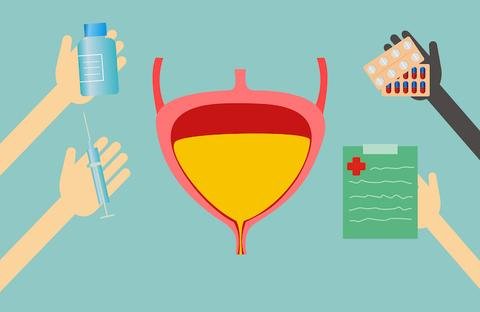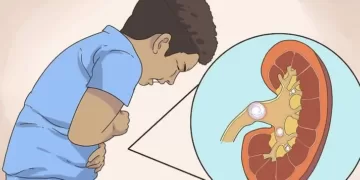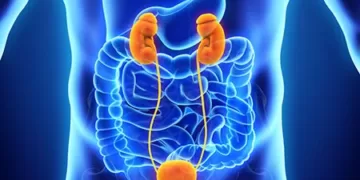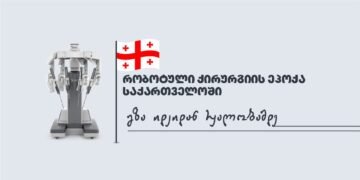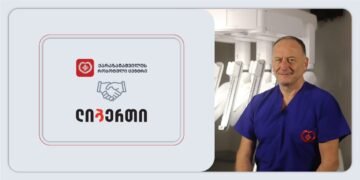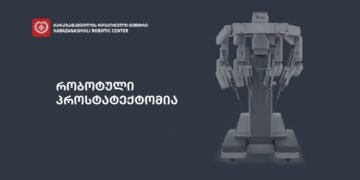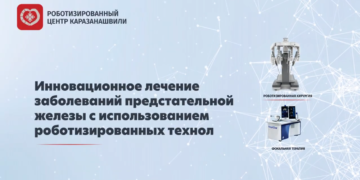Urinary disorders, such as neurogenic bladder or neurogenic bladder dysfunction, are a very common pathology that can occur at any age. Usually, a healthy person does not even pay attention to the work of the bladder and may not notice how uncontrollably this organ functions.
Normally, the bladder functions as a reservoir of urine. Urine enters the bladder through the ureters, filling the organ until the urge to urinate appears. The normal functioning of the bladder is determined by the complex interaction of the nervous system, bladder, and urethra. If any mechanism in the functioning of this articular system is disturbed, urinary disorders can appear.
Neurogenic bladder dysfunction occurs in two main forms: hypotonic bladder and hypertonic bladder.
With a hypotonic bladder, the organ is filled with urine, but the person does not feel the urge to urinate.
If the bladder is distended too much, urine may drip out. In the case of a hypertonic bladder, the opposite is true. Even in the absence of urine in the bladder, the muscles of the organ spontaneously and strongly contract. This results in an insatiable urge to urinate, and there may even be urinary incontinence. A person may urinate often and in small portions, wake up at night to empty the bladder, and urine may even return back to the kidney, which can cause pyelonephritis, a chronic inflammatory pathology that is often difficult to treat.
The cause of neurogenic bladder dysfunction can be various types of damage to the nervous system, such as trauma, tumors, multiple sclerosis, operations on the pelvic organs, diabetes mellitus, etc. Sometimes, neurogenic bladder dysfunction develops without any named reasons, mainly urine accumulates in the bladder due to the unique ability of the body to longitudes. Despite the increase in urine volume and organ enlargement, bladder pressure remains significantly lower than bladder sphincter pressure, which keeps urine in the bladder and prevents it from escaping.

Overactive bladder
The emptying of the bladder is provided by a very complex system of nervous regulation.
Due to its coordinated activity, the bladder sphincter relaxes a few milliseconds before the start of the detrusor contraction. The smooth muscles of the bladder wall, called detrusors, contract to empty the bladder. If the bladder is freely filled and completely emptied, i.e., the detrusor is not damaged.
If spontaneous detrusor contraction is caused by neurological disorders, it is called detrusor hyperreflexia, and if the reason for its reduction is not neurological disorders, then they talk about detrusor instability. When the detrusor does not contract during urination, it is considered hypoactive. If this condition is caused by neurological disorders, a detrusor reflex is present.
The urinary control center is not located in the spinal cord, as believed for many years. It is located in the brainstem. Coordination of the functions of the detrusor and sphincter is possible only while maintaining autonomic and somatic innervation. For example, when the upper parts of the spinal cord are affected, this synergy is disrupted. As a result, urinary incontinence, complete emptying of the bladder, changes in the bladder wall, and even kidney failure can appear.
Urinary disorders
Urinary disorders are divided into two groups: violation of the reservoir function of the bladder and violation of the evacuation function of the bladder (emptying). When diagnosing each disorder, it is important to find out what causes the pathology of urine secretion, whether it is related to detrusor problems or pathology of the bladder neck and urethra, or if the patient has a neurological pathology. Sometimes the same patient may have several functional disorders at the same time.
Karazanashvili Robotic Center offers diagnostics and treatment for the causes of urinary disorders using methods in accordance with international medical standards. Our medical professionals are highly skilled in diagnosing and treating neurogenic bladder dysfunction, as well as other types of urinary disorders.
If you are experiencing any symptoms of urinary disorders, such as difficulty urinating, frequent urination, urinary incontinence, or pain during urination, it is important to seek medical attention as soon as possible. Our team of specialists can provide you with a comprehensive evaluation and develop an individualized treatment plan to address your specific needs.
The article was published in 2018.
At Karazanashvili Robotic Center, we are committed to providing our patients with the highest quality care and the latest advancements in medical technology.

